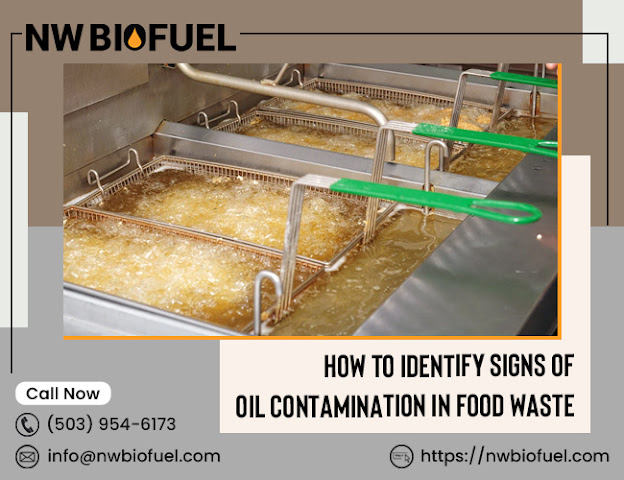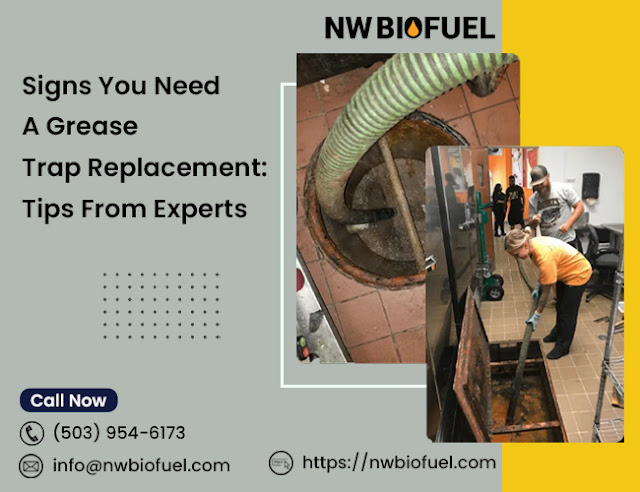How To Identify Signs Of Oil Contamination In Food Waste
In today's environmentally conscious world, proper disposal of used cooking oil is of utmost importance. Cities have established dedicated programs for used cooking oil collection and disposal, making it easier for residents to do their part. Some of them include: Renton used cooking oil collection, Redmond used cooking oil collection, Olympia used cooking oil collection, Kirkland used cooking oil collection, and Seattle used cooking oil disposal. However, ensuring that food waste is free from oil contamination is equally essential. In this blog, we'll explore how to identify signs of oil contamination in food waste and why it matters for communities like Seattle.
Why Seattle Used Cooking Oil Collection Matters
Before delving into the signs of oil contamination, let's emphasize the significance of responsible cooking oil disposal. Seattle, known for its eco-friendly initiatives, has a robust used cooking oil collection program. The success of such programs depends not only on the proper disposal of oil but also on ensuring that food waste remains uncontaminated. This dual approach helps reduce environmental impacts and maintain the quality of food waste for composting or recycling.
1. Unpleasant Odor
One of the most apparent signs of oil contamination in food waste is the presence of an unpleasant odor. Fresh food waste typically has a mild, earthy smell. However, when oil is mixed in, it can create a pungent, rancid odor. If you notice a foul smell emanating from your food waste bin, it's a clear indication that oil contamination might be present.
Seattle used cooking oil collection programs rely on residents to separate their oil waste from food waste properly. By identifying this odor, you can take corrective measures to prevent further contamination and contribute to the success of the program.
2. Oily Residue
Another telltale sign of oil contamination in food waste is the presence of oily residue. When you inspect your food waste bin or compost pile and find a layer of grease or oil on top, it's a sign that cooking oil has seeped in. This residue not only makes composting less effective but can also attract pests and rodents.
Renton, Redmond, Olympia, and Kirkland, like Seattle, have implemented used cooking oil collection programs for a cleaner environment. To ensure the success of these programs, residents must be vigilant about keeping their food waste free from oil residue.
3. Slow Decomposition
Food waste that contains oil takes longer to decompose compared to uncontaminated waste. If you notice that your compost pile isn't breaking down as quickly as expected, oil contamination may be the culprit. Oil-coated food waste creates a barrier that inhibits the natural decomposition process, leading to slower composting.
Proper disposal in Seattle's used cooking oil disposal program ensures that food waste can be efficiently converted into valuable compost for local gardens and agriculture. Preventing oil contamination is key to maintaining the efficiency of this process.
4. Slimy Texture
When you touch food waste in your bin or compost pile and it feels unusually slimy or greasy, it's a clear sign of oil contamination. The slimy texture is a result of the oil coating the organic matter, preventing it from breaking down properly.
Residents in cities like Redmond, Olympia, and Kirkland who participate in used cooking oil collection programs should be vigilant about the texture of their food waste. A slimy feel indicates the need for better separation of oil and food waste.
5. Poor Compost Quality
For communities like Seattle, where composting plays a significant role in reducing waste and benefiting the environment, maintaining high-quality compost is essential. Food waste contaminated with oil results in poor compost quality. It may not provide the nutrients necessary for plants to thrive and could even harm them.
Residents who care about their local environment and support used cooking oil collection initiatives should ensure that their food waste remains uncontaminated. This ensures that the compost produced is of the highest quality and can be used to enrich soil for gardening and agriculture.
A Shared Responsibility
Identifying signs of oil contamination in food waste is not just an individual responsibility but a collective one. Cities like Seattle, Renton, Redmond, Olympia, and Kirkland have made it convenient for residents to dispose of used cooking oil responsibly. To complement these efforts, residents must do their part by ensuring that their food waste remains free from oil contamination.
RELEVANT BLOGS
How Bellevue, Federal Way & Kent Are Leading The Way In Eco-Friendly Cooking Oil Solutions
Fatal Consequences That You Can Prevent Through Proper Used Cooking Oil Disposal
How to Properly Package And Store Used Cooking Oil For Collection


.jpg)
Comments
Post a Comment